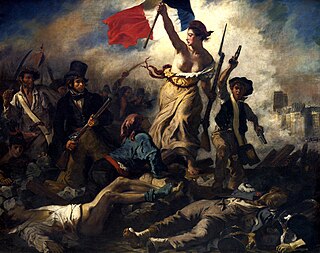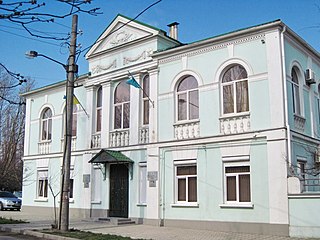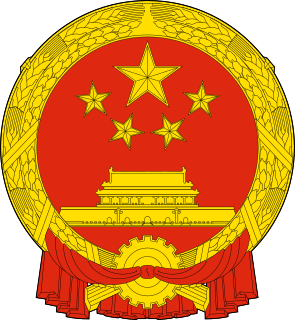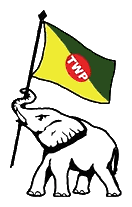 W
WApartheid was a system of institutionalised racial segregation that existed in South Africa and South West Africa from 1948 until the early 1990s. Apartheid was characterised by an authoritarian political culture based on baasskap, which ensured that South Africa was dominated politically, socially, and economically by the nation's minority white population. According to this system of social stratification, white citizens had the highest status, followed by Asians and Coloureds, then black Africans. The economic legacy and social effects of apartheid continue to the present day.
 W
WBerberism or Amazighism is a Berber political-cultural movement of ethnic, geographic, or cultural nationalism, started mainly in Kabylia (Algeria) and in Morocco, later spreading to the rest of the Berber communities in the Maghreb region of North Africa. A Berber group, the Tuaregs, have been in rebellion against Mali since 2012, and established a temporarily de facto independent state called Azawad, which identified itself as Berber.
 W
WBrotherhood and Unity was a popular slogan of the League of Communists of Yugoslavia that was coined during the Yugoslav People's Liberation War (1941–45), and which evolved into a guiding principle of Yugoslavia's post-war inter-ethnic policy. In Slovenia, the slogan "Brotherhood and Peace" was used in the beginning.
 W
WThe area within Belgium known as Brussels-Halle-Vilvoorde encompasses the bilingual—French and Dutch—Brussels-Capital Region, which coincides with the arrondissement of Brussels-Capital and the surrounding Dutch-speaking area of Halle-Vilvoorde, which in turn coincides with the arrondissement of Halle-Vilvoorde. Halle-Vilvoorde contains several municipalities with language facilities, i.e. municipalities where French-speaking people form a considerable part of the population and therefore have special language rights. This area forms the judicial arrondissement of Brussels, which is the location of a tribunal of first instance, enterprise tribunal and a labour tribunal. It was reformed in July 2012, as part of the sixth Belgian state reform.
 W
WThe modern Celts are a related group of ethnicities who share similar Celtic languages, cultures and artistic histories, and who live in or descend from one of the regions on the western extremities of Europe populated by the Celts.
 W
WEthnopolitics, formerly known as Global Review of Ethnopolitics, is a peer-reviewed academic journal focusing on the intersection of ethnic groups and politics. It was established in the United Kingdom by the Political Studies Association's Specialist Group on Ethnopolitics. Its editors-in-chief are Karl Cordell and Stefan Wolff.
 W
WThe Ewe Unification Movement was a series of west African ethno-nationalist efforts which sought the unification of the Ewe peoples spread across what are now modern Ghana and Togo. It emerged as a direct political goal around 1945 under the colonial mandate of French Togoland, however the ideal of unifying the group has been an identifiable sentiment present amongst the ethnicity's leadership and wider population ever since their initial colonial partitions by the British and German Empires from 1874 to 1884. While there have been many efforts to bring about unification, none have ultimately been successful due to both the platform itself often being a secondary concern for political leadership, or inter/intrastate conflicts overshadowing them.
 W
WA homeland is the concept of the place where a cultural, national, or racial identity had formed. The definition can also mean simply one's country of birth. When used as a proper noun, the Homeland, as well as its equivalents in other languages, often has ethnic nationalist connotations. A homeland may also be referred to as a fatherland, a motherland, or a mother country, depending on the culture and language of the nationality in question.
 W
WA homeland is the concept of the place where a cultural, national, or racial identity had formed. The definition can also mean simply one's country of birth. When used as a proper noun, the Homeland, as well as its equivalents in other languages, often has ethnic nationalist connotations. A homeland may also be referred to as a fatherland, a motherland, or a mother country, depending on the culture and language of the nationality in question.
 W
WMacedonian nationalism is a general grouping of nationalist ideas and concepts among ethnic Macedonians that were first formed in the late 19th century among separatists seeking the autonomy of the region of Macedonia from the Ottoman Empire. The idea evolved during the early 20th century alongside the first expressions of ethnic nationalism among the Slavs of Macedonia. The separate Macedonian nation gained recognition after World War II when the "Socialist Republic of Macedonia" was created as part of Yugoslavia. Afterwards the Macedonian historiography has established historical links between the ethnic Macedonians and events and Bulgarian figures from the Middle Ages up to the 20th century. Following the independence of the Republic of Macedonia in the late 20th century, issues of Macedonian national identity have become contested by the country's neighbours, as some adherents to aggressive Macedonian nationalism, called Macedonism, hold more extreme beliefs such as an unbroken continuity between ancient Macedonians, and modern ethnic Macedonians, and views connected to the irredentist concept of a United Macedonia, which involves territorial claims on a large portion of Greece, along with smaller regions of Albania, Bulgaria, Kosovo and Serbia.
 W
WThe Mejlis of the Crimean Tatar People is the single highest executive-representative body of the Crimean Tatars in period between sessions of the Qurultay of the Crimean Tatar People.
 W
WThe New Flemish Alliance is a Flemish nationalist, conservative political party in Belgium. The party was founded in 2001 by the right-leaning faction of the centrist-nationalist People's Union (VU). The N-VA is a regionalist, separatist movement that self-identifies with the promotion of civic nationalism. It is part of the Flemish Movement; the party strives for the peaceful and gradual secession of Flanders from Belgium. In recent years it has become the largest party of Flanders as well as of Belgium as a whole, and it participated in the 2014–18 Belgian Government until 9 December 2018.
 W
WThe right to homeland is according to some legal scholars a universal human right, which is derived from the Universal Declaration of Human Rights, including its Article 9. The concept evolved in German jurisprudence and is recognized in German constitutional law to a certain degree. Notable proponents of the concept include legal scholars Kurl Rabl, Rudolf Laun, Otto Kimminich, Dieter Blumenwitz, Felix Ermacora and Alfred-Maurice de Zayas. The concept is relevant to debates concerning ethnic cleansing in Europe after World War II, ethnic cleansing in Palestine, Cyprus and other areas.
 W
WThe National Ethnic Affairs Commission of the People's Republic of China is a de jure cabinet-level executive department of the State Council of the People's Republic of China and responsible for relations between the Central Government and ethnic minorities in China. In 2018, the NEAC was officially placed under the direct leadership of the United Front Work Department of the Central Committee of the Communist Party of China.
 W
WThe True Whig Party (TWP), also known as the Liberian Whig Party (LWP), is the oldest political party in Liberia and one of the oldest parties in Africa. Founded in 1869 by primarily darker-skinned Americo-Liberians in rural areas, its historic rival was the Republican Party. Following the decline of the latter, it dominated Liberian politics from 1878 until 1980. The nation was virtually governed as a one-party state under the TWP, although opposition parties were never outlawed.
 W
WUlster loyalism is the political movement for maintaining Northern Ireland within the United Kingdom. Like most unionists, loyalists are attached to the British monarchy, support the continued existence of Northern Ireland, and oppose a united Ireland. Ulster loyalism has been described as a kind of ethnic nationalism and "a variation of British nationalism".
 W
WWorld on Fire: How Exporting Free Market Democracy Breeds Ethnic Hatred and Global Instability is a 2003 book by the American law professor Amy Chua. It is an academic study of ethnic and sociological divisions in the economic and political systems of various societies. The book discusses the concept of market-dominant minorities, defined as ethnic minority groups who, under given market conditions, tend to dominate economically, often significantly, over all other ethnic groups in the country.